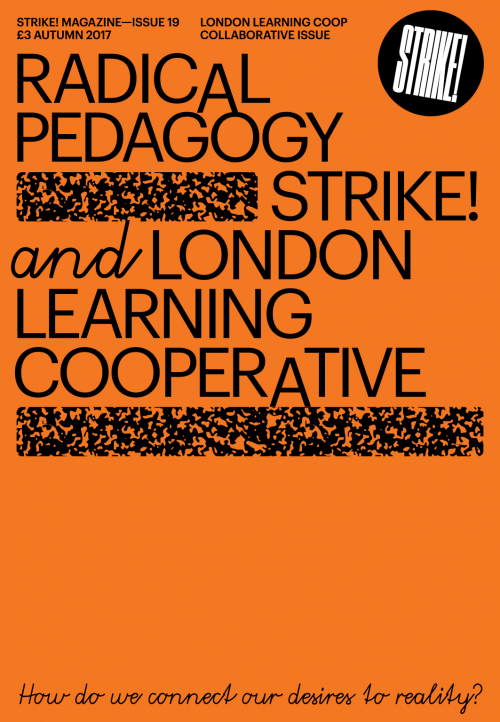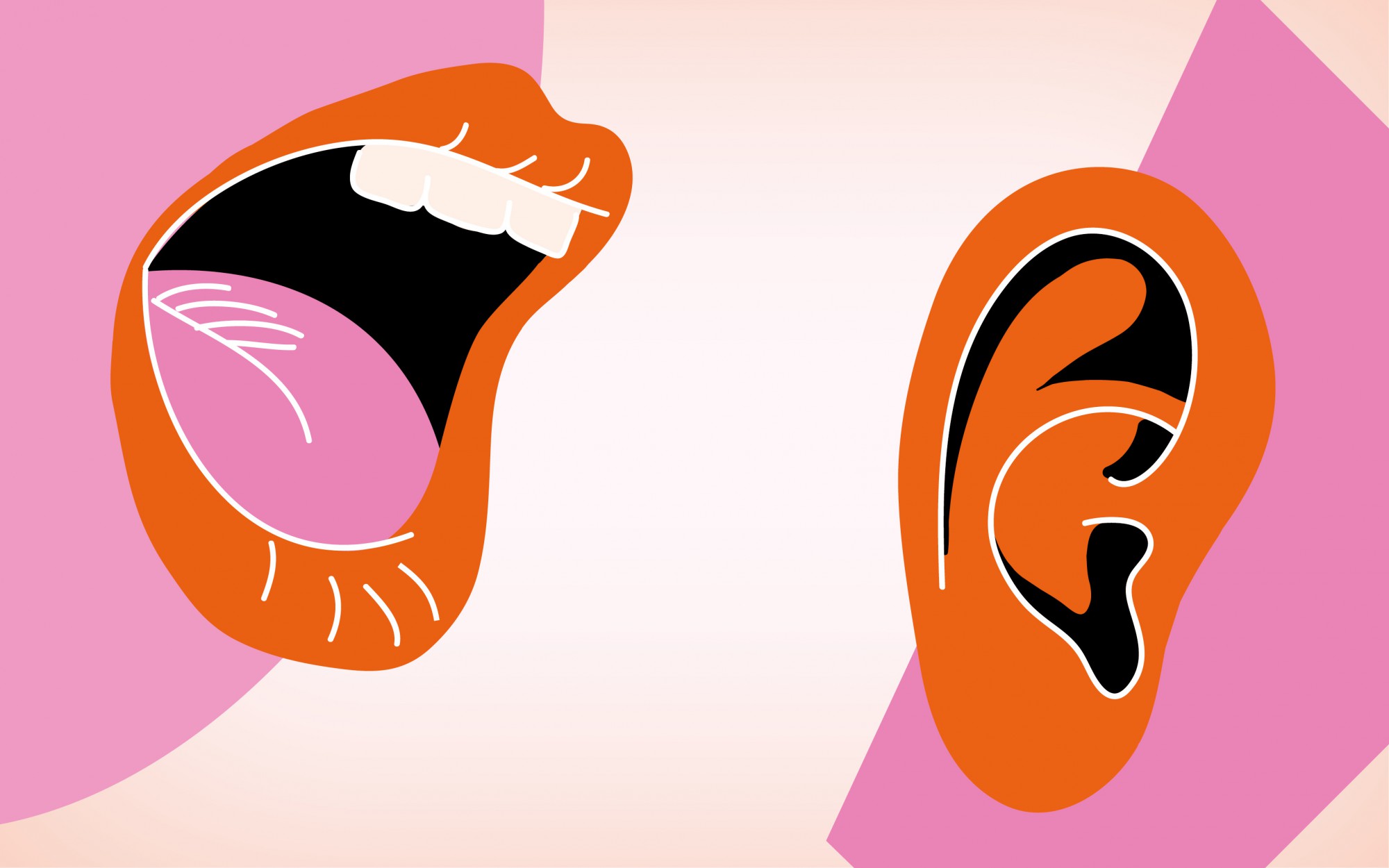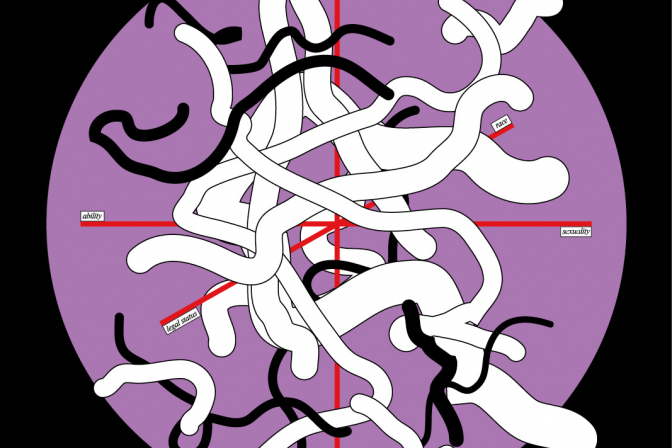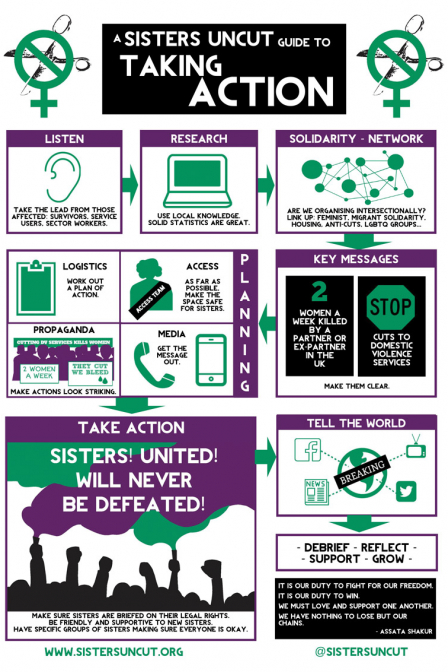Radical Listening: A Manifesto
People listened instead of just waiting for their turn to speak. And when they spoke, they weren't telling you a story. When the two of you talked, you were building something, and afterward you were both different than before.
— Chuck Palahniuk, Fight Club
Over the last few years I’ve found myself distancing from friends, friends I love but friends who don’t listen. Friends who can’t listen, friends who don’t know how to listen, friends who try but fall short. I’m talking about truly, deeply, radically listening. Hearing and feeling; not just butting in with what happened to you at work yesterday. Sometimes it’s okay not to listen, if we Radically Listened all of the time we’d burn out; it’s not viable. But with these friends I find myself constantly burning out because of just that and being left exhausted. You expect my Radical Listening; like a vessel to pour all of yourself into; often without consent and rarely reciprocated. I’ve found this scenario plays out ten-fold for white friends; all of my white friends; and YES that means you; you’re reading this right now and wondering if I mean you, or maybe I’m on about my ‘other white mate who talks a lot’? I’m not. I mean you pal. I one-hundred percent mean you.
Listening is a labour, PoC often are only allowed to take up space when we are providing some form of labour. If I can be your therapist, if I can listen endlessly I can then assimilate myself in emotional servitude and am rewarded with space and allowed to co-exist in your white world; this all balances on me, a femme PoC, continuing to provide a service for you, in every aspect of our friendship. It was these thoughts and feelings of resentment that brought me to ‘Radical Listening’. But what birthed from anger came something far more powerful: I realised that when listening is done right, well and reciprocated, it can be one of the most radical and unifying acts you will ever experience.—Soof
I spent most of my life going from being the therapist of my group of friends to being the one never listening and always interrupting (repeat this back and forth ad nauseum).
Somehow a balance was never an option; I was either going to be drained listening and trying to “save” my friends or lose my breath talking their ears’ off in the constant fear that keeping anything I’ve ever felt and thought to myself would lead to me bursting open, in a dramatic scene of gore and angst spilling onto the pavement in front of a horrified but engrossed crowd. I was wrong.—Sarah
1. Listening requires consent
First and foremost, get used to asking. No one is obliged to listen to you and if someone does: fucking respect and value that. Ask before you offload. Ask if you’re taking up too much space and ask if you’re not sure. ASK. ASK and ask some more! It changes the entire dynamic, its gives autonomy to both of you. Listening is two-way, listening is building, ask before you start building in their garden. Just try it. You meet your friend for coffee, your mate asks ‘how are you’ you say ‘not bad, you?’ and they say ‘yeah good, how’s work, is your boss still a bastard?’ before you dive in, before you reply, ask: ‘is it okay to moan about this? He’s a capitalist pig. Can I vent?’ and go from there. Consciously asking will also let you reflect on how often you’re taking up space and with whom.
2. Radical listening is not about becoming a therapist or a self-sacrificial saint
Radical Listening is not a sacrifice you make. Radical Listening is as much an act of self-love as it is an act of expressing love for others. If listening is hurting you, stop. If listening to a particular person, to a particular story, in a particular moment, hurts you, stop. Take a step back. You are not a holy sponge created to absorb the emotional torrent that someone might flood you with. You are a three-dimensional being as much as the person you are listening to is. A wonderful friend once said to me ‘we have the ‘freedom of speech’, so what about the freedom of listening’. Freedom to listen for me feels like just that, take a step back, stop, you have freedom to listen and not listen, exert that control often and liberally. It’s okay to do so: this is all the permission you need to not listen if your listening is being abused.
If you’re constantly offloading or venting to the same one person who always listens, (because they’re good at it, it’s a fantastic skill, they ask the right questions, they make your voice heard and your words feel valid). Stop. Listening is an emotional labour; listening can be draining. Do not abuse the fact someone is good at listening: you are not entitled to their labour. This goes back to consent. It’s not just the listener’s responsibility to say no, it’s your responsibility to be self-aware.
You are not entitled to their labour and nor other’s yours. I am your friend, I am your comrade and I am not your therapist.
3. Radical listening is hard: don’t be an arse
It can be hard to radically and authentically listen to someone else when you have so much to say yourself. It can feel like time is running out and you’re fighting to pour out all your thoughts, ideas, and words. All the things you want to say, the things that have happened, will happen, won’t happen. The story about work, you’re stressed, your cat is beautiful, that article you read online, the thing your local liberal said about breaking windows during riots, the cute girl you met, that email you want their opinion on. It can seem like making space for another person’s words means sacrificing your own. It’s hard to make space in your own for someone else’s; but here’s the secret: the space you’re afraid to lose is not inherently yours. From the moment you let someone, anyone, into your life you agree to build shared spaces for both of you, in your words, in your actions, in your conversations: you agree to exist together.
I guess it’s like a flatshare. You’re in a flatshare, but if you live and act like you would as if you were a single occupant of your own flat then, mate, you’re an arse. You’re the arsey flatmate. You’re not doing the dishes, you’re not doing communal chores, you keep eating their food, and everyone has to clean up after you. Stop being an arse. Same goes for any consensual relationships you decide to build. (Oh, and we all tell our friends what an arse of a flatmate you are too; bad listening tarnishes your rep).
4. It’s okay if you didn’t say everything you wanted to
If you really and truly listen to each other then you’ll have all the time in the world to empty your well of stories. The hardest bit of Radical Listening is often being brave enough to make the first step and be conscious about how you are listening.
You need to reflect on where you’re at first, get your bearings and remember that it’s a never-ending fight; it’s not a magic switch in your head. You’re bubbling up with feelings and stories almost bursting and you might not get a chance to pour them all out this time, with this particular person. That’s OK. The stories might escape you. You might forget them for a bit. It’s OK. It happens. You don’t need to tell them everything; they’re not a vessel for you to pour everything inside. The stories will come back to you at a better time. If they don’t that’s OK too. They are just stories and moments. You will get more.
5. Not waiting for your turn to speak
Waiting for your turn to speak isn’t radical listening. Don’t just wait to pour monologues into listeners. I’ve been in so many conversations where I can just feel they’re not listening to my words; they’re listening out for the silence that follows so they can say their piece. I remember on many occasions, we both speak at once accidently, they apologize and let me speak me first. Letting me speak first is a good gesture, but it’s the follow up that matters. I can see and feel they’re just waiting for their turn. It makes me feel hollow, and it’s then I know my words aren’t the important bit and they quickly lose their weight. They tumble around us waiting to be swept away.
When the same level of care and Radical Listening isn’t reciprocated it just fosters resentment. Listening back to the person that listens is crucial. When it’s reciprocated it’s game changing. The friends who authentically listen are always closer to my heart.
6. People don’t need saviours, they need friends
One of the best ways to help someone is to make the person you’re listening to feel heard. You can do this in so many ways. Firstly by not making the situation about you: ‘I know how you feel, my boss is an arse too, last week he….” and then diving into telling them about you. Stop. Listen to their words, this isn’t your story, this isn’t making them feel heard. Secondly, don’t try fixing it: ‘oh, work is hard, have you thought about looking for somewhere else, if you cut down your hours it could be better, if you do xyz….’ Stop. Unless they explicitly ask for your help in a conversation you don’t need to solve their problem. You just need to hear them. Say “I’m sorry”, “this sucks”, “this is awesome”, “I’m happy for you”, “sounds good” and “is there anything I can do to help?”. Let them speak, let them share; let them have the agency and autonomy.
7. Radical listening can be empowering
Not being listened to is exhausting. When you’re not listened to, either your words dry up or the reverse: they gush out endlessly.
Your words have nowhere to land, they float around heavy in the air; you’re not transferring your energy, it’s just being thrown out hoping it finds a home but it ends up suspended in an echo chamber, in limbo, it’s going nowhere. The exhaustion of not being heard, of your words having nowhere to land mean your energy ends up being an empty weight.
But, when you’re being really listened to, when your words and ideas are being processed, when you’re getting something back whether it is just by the person listening or them vocally processing it, then your well finds its depth and you empty. Your energy has somewhere to transfer to, your words finally have a home. You’ll find you run out of things to say because your energy is expended and it's enough; listening is about transference of energy when you’re listened to, you can listen in return.
So why do all this? It’s a lot of emotional labour, it's a lot of relearning and disruption. Is it even worth the effort? We've got real shit to worry about compared to this. Well: Radical Listening is one of the most powerful tools you have in your emotional arsenal. Listening empowers you and others by establishing a connection and a common narrative between you and comrades. Your life experience is stronger shared and heard. Your words are stronger homed, your voice, your resistance: everything. Radically Listening lets you expand together. Radically Listening is building: it’s connecting and merging words, ideas; merging you with others. When one drop of water merges with other drops of water it becomes a puddle, which becomes a lake, which becomes a river, which becomes the sea. Try to dry out the sea. We fucking dare you.
We (Soof and Sarah) are currently working on a zine where we explore the idea of Radical Listening and further detail some things we touch upon here.
If you’re into it: follow @soofiyac to keep up to date on its publish date.

Get it here



